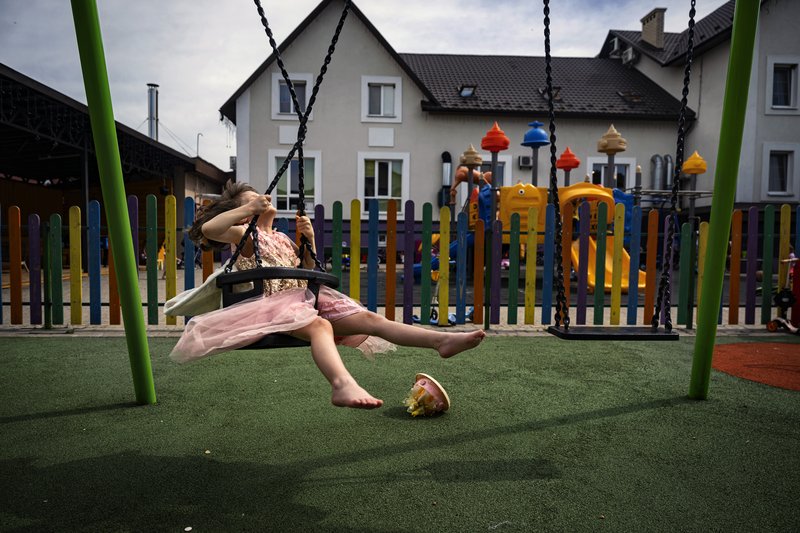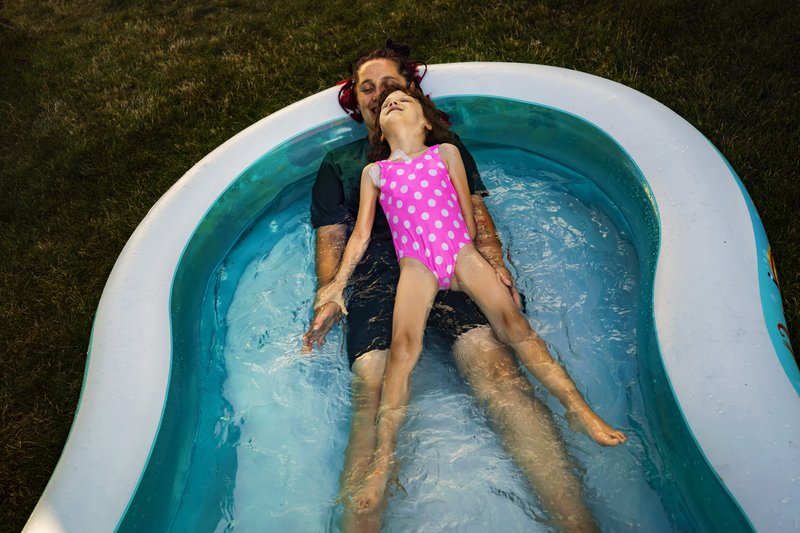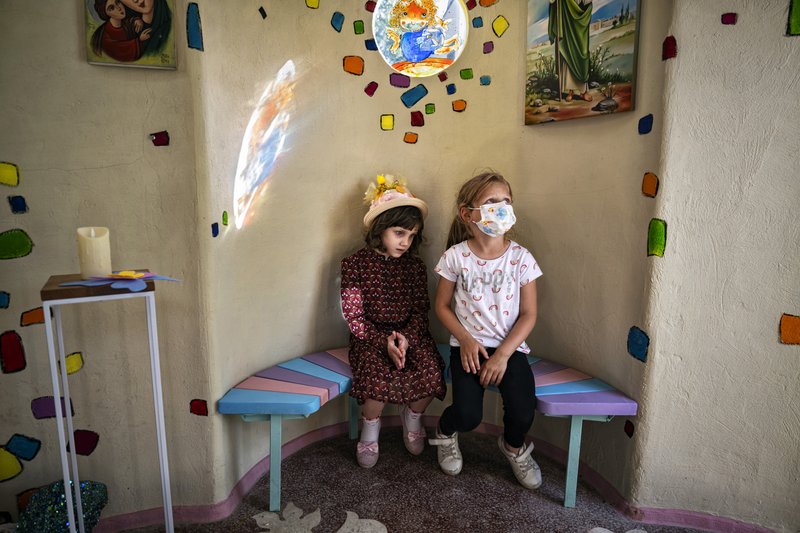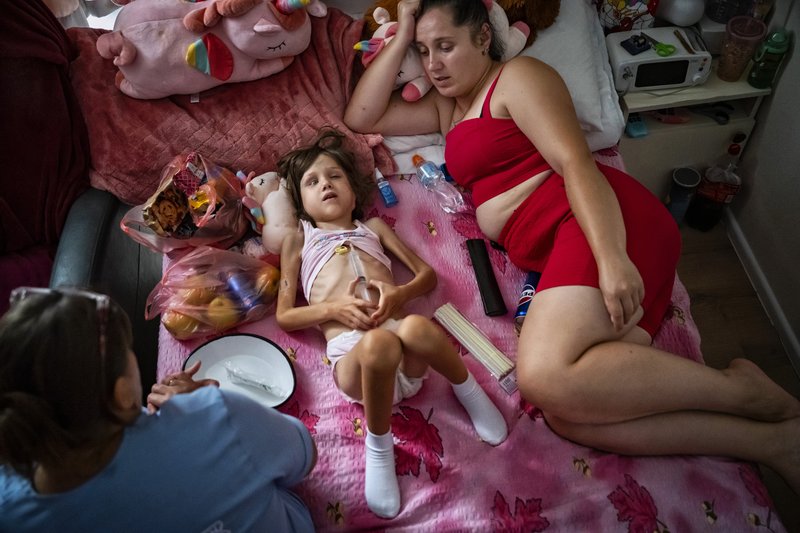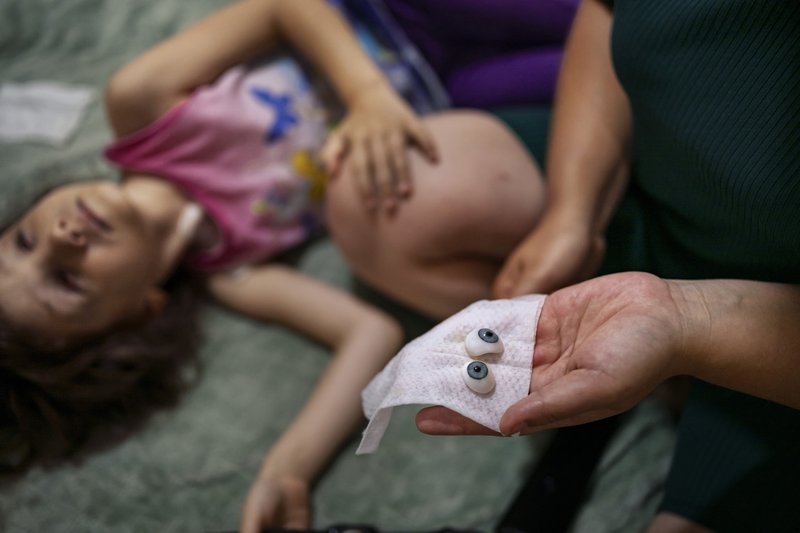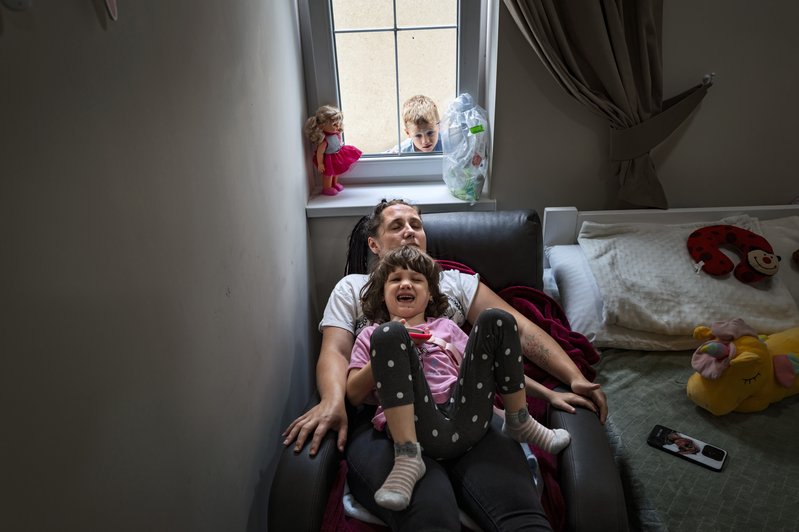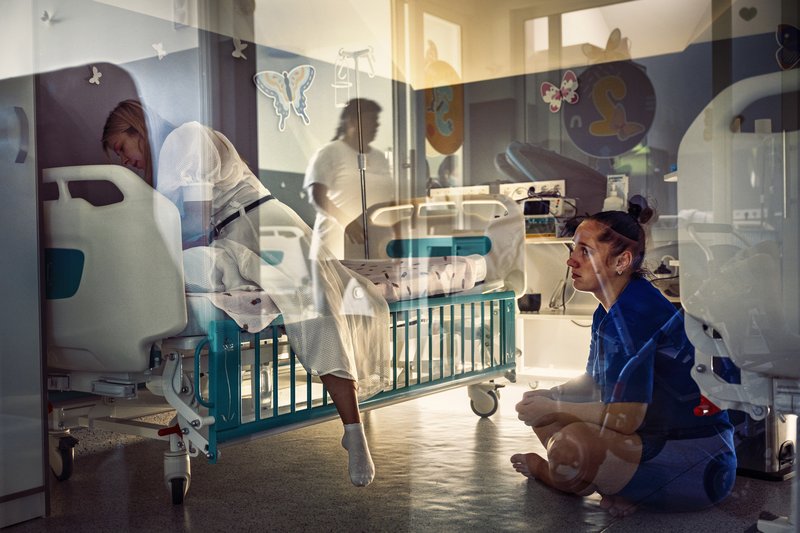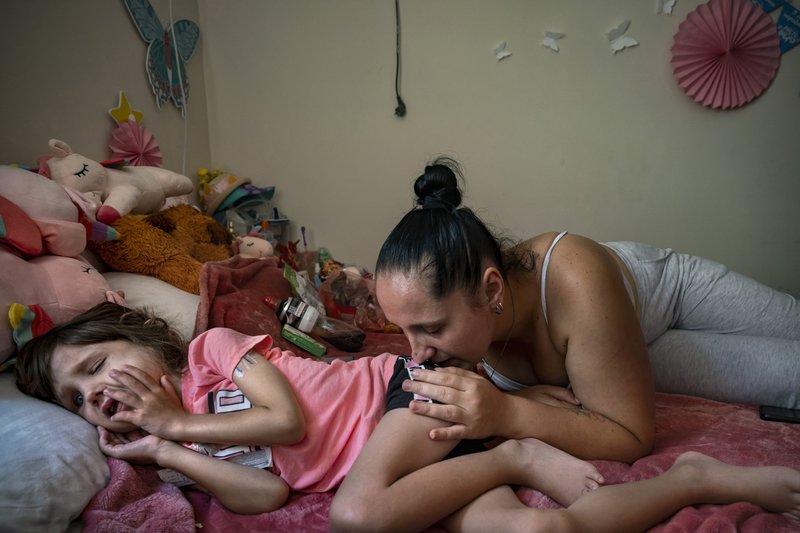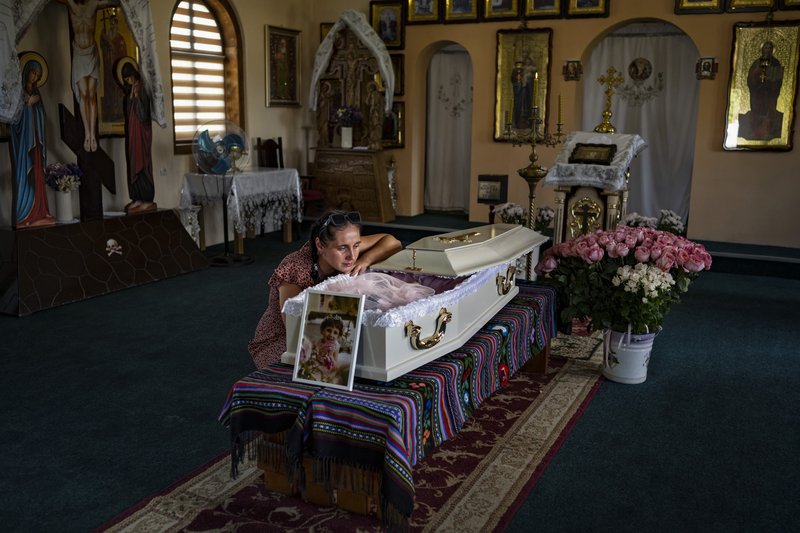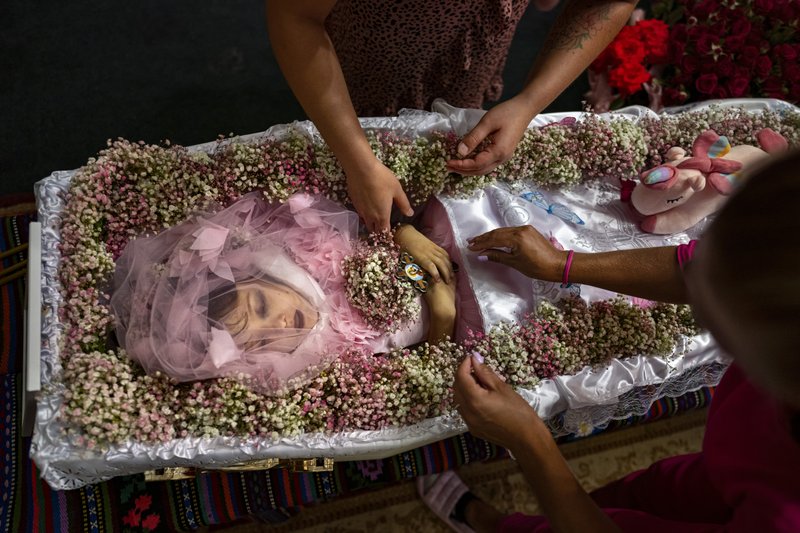Finalist: 'Mom. I Want to Live': A Young Girl Battles War and Cancer
Ukraine War; two year anniversary; children
Natalya Kryvolapchuk, 27, places a cross into the hands of her daughter, Sonya Kryvolapchuk, 6, as Sonya’s lies in her coffin surrounded by flowers and her favorite stuffed unicorn the evening after Sonya passed away from metastasis of Retinoblastoma cancer in the Pediatric Hospital in Chernivtsi, western Ukraine, August 21, 2024. Sonya was diagnosed with Retinoblastoma, a rare eye cancer, in 2020; she was 2 years old. Over the next 16 months, Sonya completed more than a dozen courses of chemotherapy and 25 sessions of radiation. She was scheduled to have another round of chemotherapy in Kyiv at the Ohmatdyt Hospital on February 27, 2022, three days after the start of Russia’s full-scale invasion of Ukraine when she and her mother, Natalia, were diverted instead to Poland, where Sonya received many diagnostic tests, but no additional treatment. By the time her mother decided to return to Ukraine for another attempt at chemo, her cancer had spread throughout her body. She has lost both eyes and is totally blind, and in mid-May 2024, doctors gave her only days to live. She is also accompanied by her 7-year-old sister, Valeria Liakh, and her brother, Sasha, 4. Two years into Russia’s full-scale invasion of Ukraine, families with children suffering from severe illnesses have struggled to navigate the complexities of care in the throes of a war. (Credit: Lynsey Addario for The New York Times)
Lynsey Addario
